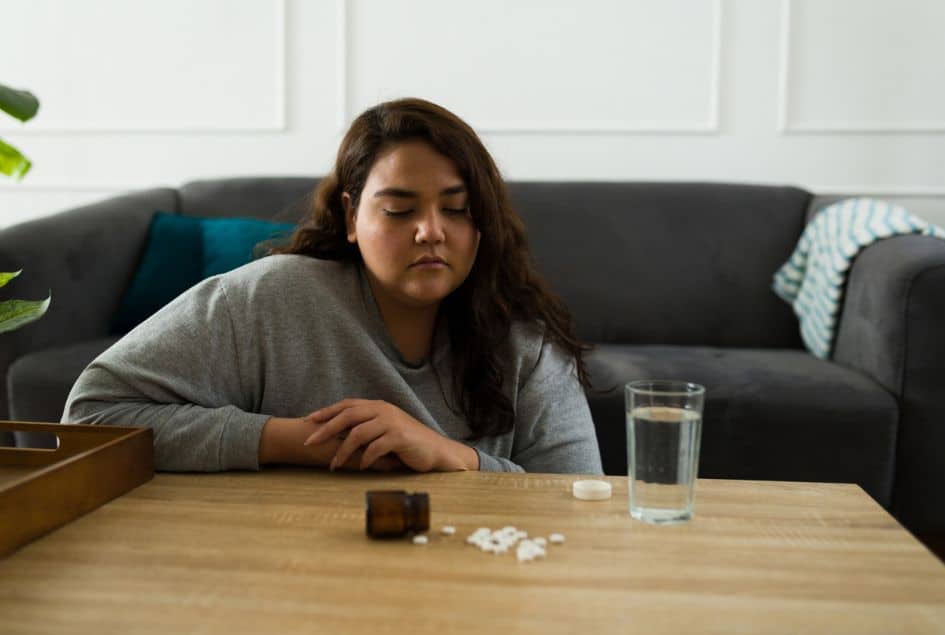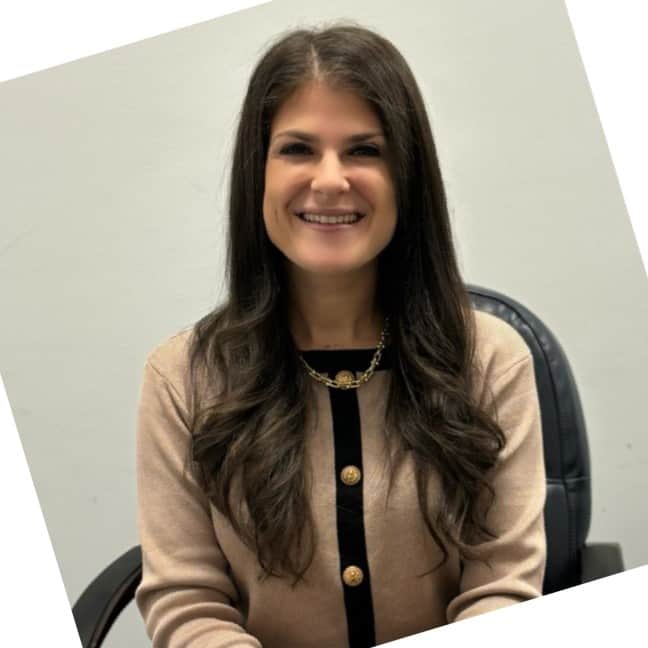Depression often drives individuals to seek solace in substances like alcohol or drugs. Unfortunately, while these substances might offer temporary relief, they typically intensify the symptoms of depression, creating a cycle that can be difficult to break.
Similarly, substance abuse can lead to or exacerbate mental health disorders, including depression, by altering brain chemistry and affecting mood regulation. The constant struggle with both conditions can lead to a deepening sense of despair and hopelessness, compounding the difficulties of recovery.
This cycle not only complicates the treatment process but also underscores the need for a comprehensive and integrated approach to care. Addressing both depression and substance abuse is essential for overcoming this pattern and supporting individuals in their journey toward recovery.
Signs and Symptoms of Depression
Depression goes beyond feeling sad or having a bad day. It’s a complex mental health disorder that can significantly impact an individual’s life. By understanding the signs and symptoms of depression, it’s easier to recognize when you or a loved one might need help.
Understanding Depression
Depression is a prevalent mental health condition characterized by persistent feelings of sadness, hopelessness, and a lack of interest or pleasure in daily activities. Depression is a general term used to describe a range of mental health conditions characterized by these feelings, and it can vary in severity and duration. It affects how you feel, think, and handle daily activities, such as sleeping, eating, or working. According to the National Institute of Mental Health, millions of people worldwide experience depression, yet many don’t seek the help they need.
Common Symptoms of Depression
The symptoms of depression can vary from person to person, but common signs include:
- Persistent Sadness: A constant feeling of sadness, emptiness, or hopelessness.
- Loss of Interest: Losing interest or pleasure in hobbies and activities you once enjoyed.
- Changes in Appetite: Significant weight loss or gain unrelated to dieting.
- Sleep Disturbances: Trouble sleeping or sleeping too much.
- Fatigue: Feeling tired all the time, even after adequate rest.
- Difficulty Concentrating: Trouble focusing, making decisions, or remembering things.
- Physical Symptoms: Aches, pains, headaches, or digestive problems without a clear physical cause.
- Thoughts of Death or Suicide: Recurrent thoughts of death, suicidal ideation, or suicide attempts.
Major Depressive Disorder vs. Clinical Depression
Major depressive disorder and clinical depression are terms often used interchangeably to describe severe depression. This type of depression involves multiple depressive episodes that significantly impair daily functioning. The Diagnostic and Statistical Manual of Mental Disorders (DSM-5) outlines specific criteria for diagnosing major depressive disorder, including experiencing at least five symptoms of depression for a minimum of two weeks.
Seasonal Affective Disorder (SAD)
Seasonal affective disorder is a type of depression that occurs at certain times of the year, usually in the winter when there is less natural sunlight. Symptoms of SAD include many of the same symptoms as major depression, such as low energy, overeating, and sleeping too much. Treatment options for SAD often include light therapy, medication, and psychotherapy.
Bipolar Disorder
Bipolar disorder is another mental health condition that involves episodes of depression and mania. During depressive episodes, individuals with bipolar disorder experience symptoms similar to those of major depression. The mood swings between depressive and manic episodes can be severe and disrupt a person’s ability to function normally.
Co-Occurring Disorders: Depression and Substance Use
It’s not uncommon for individuals with depression to have co-occurring disorders, such as substance use disorder. Many people with depression symptoms turn to alcohol or drugs as a form of self-medication, which can lead to substance abuse or alcohol use disorder. This creates a vicious cycle where substance use exacerbates depression symptoms, making it even harder to seek and receive effective treatment.

Substance Abuse and Mental Health Services Administration (SAMHSA) on Depression and Substance Abuse
The Substance Abuse and Mental Health Services Administration (SAMHSA) is a U.S. government agency dedicated to improving the quality and availability of mental health and substance use services.
Part of the U.S. Department of Health and Human Services (HHS), SAMHSA focuses on advancing the nation’s behavioral health by promoting the prevention, treatment, and recovery of mental and substance use disorders.
SAMHSA provides valuable insights into how depression and substance abuse often go hand-in-hand, highlighting the need for a thoughtful, integrated approach to treatment. They recognize that when someone struggles with depression, they might turn to substances like alcohol or drugs for relief. Unfortunately, this can make their depressive symptoms even worse, creating a vicious cycle that’s hard to get out of.
SAMHSA works to combat the stigma that often surrounds mental health and substance use disorder. Reducing this stigma is vital for encouraging people to seek help and access the support they need.
Treatment Options for Mental Disorders and Substance Use Disorders
Navigating treatment options for mental disorders and substance use disorders can feel overwhelming, but understanding the various approaches available can empower individuals to make informed decisions about their recovery journey.
Each person’s path to wellness is unique, requiring a tailored approach that addresses their needs and circumstances. From evidence-based therapies and medication management to support groups and holistic practices, various treatment options can help manage symptoms and promote lasting recovery.

Integrated Treatment Programs
Right Path specializes in integrated treatment programs that tackle both depression and substance use, recognizing the complex relationship between these two issues.
Their approach ensures that clients receive comprehensive care tailored to their individual circumstances, promoting a more effective path to recovery. Here’s a closer look at what these programs include:
- Dual Diagnosis Therapy: Addressing both mental health and substance use disorders concurrently. This approach ensures that both conditions are treated effectively.
- Individual and Group Therapy: Personalized therapy sessions allow individuals to explore underlying issues, develop coping strategies, and gain support from others facing similar challenges.
Cognitive-behavioral therapy (CBT)
Cognitive Behavioral Therapy (CBT) is a cornerstone of treatment at Right Path, and for good reason. This evidence-based approach helps individuals identify and change negative thought patterns and behaviors, which is particularly effective for those dealing with both depression and substance use.
Here’s a closer look at how CBT plays a crucial role in the recovery process:
Understanding CBT
CBT is a structured, goal-oriented therapy that focuses on identifying and altering negative thought patterns and behaviors. It operates on the premise that our thoughts influence our emotions and actions.
By changing these dysfunctional thoughts and behaviors, individuals can improve their emotional well-being and manage their substance use more effectively.
Addressing Negative Thought Patterns
One of the primary goals of CBT at Right Path is to help individuals recognize and challenge negative thoughts that contribute to depression and substance abuse. For example, a person might have the belief that they are worthless or that they cannot cope without drugs or alcohol.
CBT helps individuals identify these harmful thoughts and replace them with more realistic and positive ones, which can reduce feelings of hopelessness and self-doubt.
Changing Unhelpful Behaviors
In addition to altering negative thoughts, CBT focuses on modifying behaviors that perpetuate substance abuse and depressive symptoms. This might involve developing healthier coping mechanisms, learning how to manage stress, and avoiding triggers that lead to substance use.
For instance, if someone uses alcohol to cope with stress, CBT would work on finding alternative, healthier ways to handle stress.
Building Coping Skills
CBT equips individuals with practical skills to handle daily challenges and emotional distress. These skills are crucial for those dealing with both depression and substance abuse, as they provide tools to manage cravings, avoid relapse, and navigate difficult emotions.
Techniques such as problem-solving, relaxation exercises, and assertiveness training are commonly used to enhance an individual’s ability to cope effectively.

Medication-Assisted Treatment (MAT)
For those struggling with severe substance use disorders, Right Path provides Medication-Assisted Treatment (MAT). MAT combines FDA-approved medications with counseling and behavioral therapies to offer a “whole-patient” approach.
This method helps reduce cravings and withdrawal symptoms, making it easier for individuals to focus on recovery.
Holistic Therapies
Right Path incorporates holistic therapies to promote overall well-being and help individuals develop healthy coping mechanisms. These therapies include:
- Yoga and Meditation: These practices help reduce stress and improve mental clarity.
- Art Therapy: Engaging in creative activities can be therapeutic and provide a positive outlet for emotions.

Family Involvement
Understanding the impact of addiction and depression on families, Right Path offers family therapy sessions. These sessions help repair relationships, improve communication, and build a supportive home environment crucial for sustained recovery.
Aftercare and Support
After completing an initial treatment program, Right Path ensures continued support through aftercare planning and support groups. These resources are vital for helping individuals maintain their sobriety and manage depression long-term.
- Support Groups: Regular meetings provide a community of support and accountability.
- Continued Therapy: Ongoing therapy sessions help individuals stay on track and address any new challenges that arise.
Lifestyle and Wellness Programs
Right Path emphasizes the importance of a balanced lifestyle in recovery. Their programs include:
- Nutrition Counseling: A proper diet is essential for physical and mental health.
- Exercise Programs: Regular physical activity is encouraged to boost mood and energy levels.

When to Seek Help
Recognizing the signs of depression and seeking help early can make a significant difference. If you or someone you know is experiencing symptoms of depression, it’s essential to reach out to a mental health professional. They can provide an accurate diagnosis and develop a personalized treatment plan.
Depression is a challenging and often debilitating condition, but with the right support and treatment, individuals can find relief and lead fulfilling lives. Don’t hesitate to seek help if you’re struggling—recovery is possible, and you don’t have to face it alone.

Contact Right Path Recovery Today
Choosing the right treatment center can be a game-changer on the road to recovery, especially when handling the complex interplay of depression and substance abuse. At Right Path, we understand that effective treatment requires a holistic and integrated approach. We offer various services designed to address both conditions simultaneously, recognizing that each condition can exacerbate the other.
Right Path provides a comprehensive care model that includes evidence-based therapies, medication management, and personalized support plans customized for each individual’s situation. Their team of mental health professionals and addiction specialists works collaboratively to create a treatment plan that targets both depression and substance use, helping clients navigate the challenges of recovery with greater ease.
If you are looking for support on your journey, contact us today to see our various treatments that can provide valuable insight into your depression and substance use disorders. At our San Diego rehab center are available to help you build a strong foundation for lasting recovery and a more fulfilling life.

